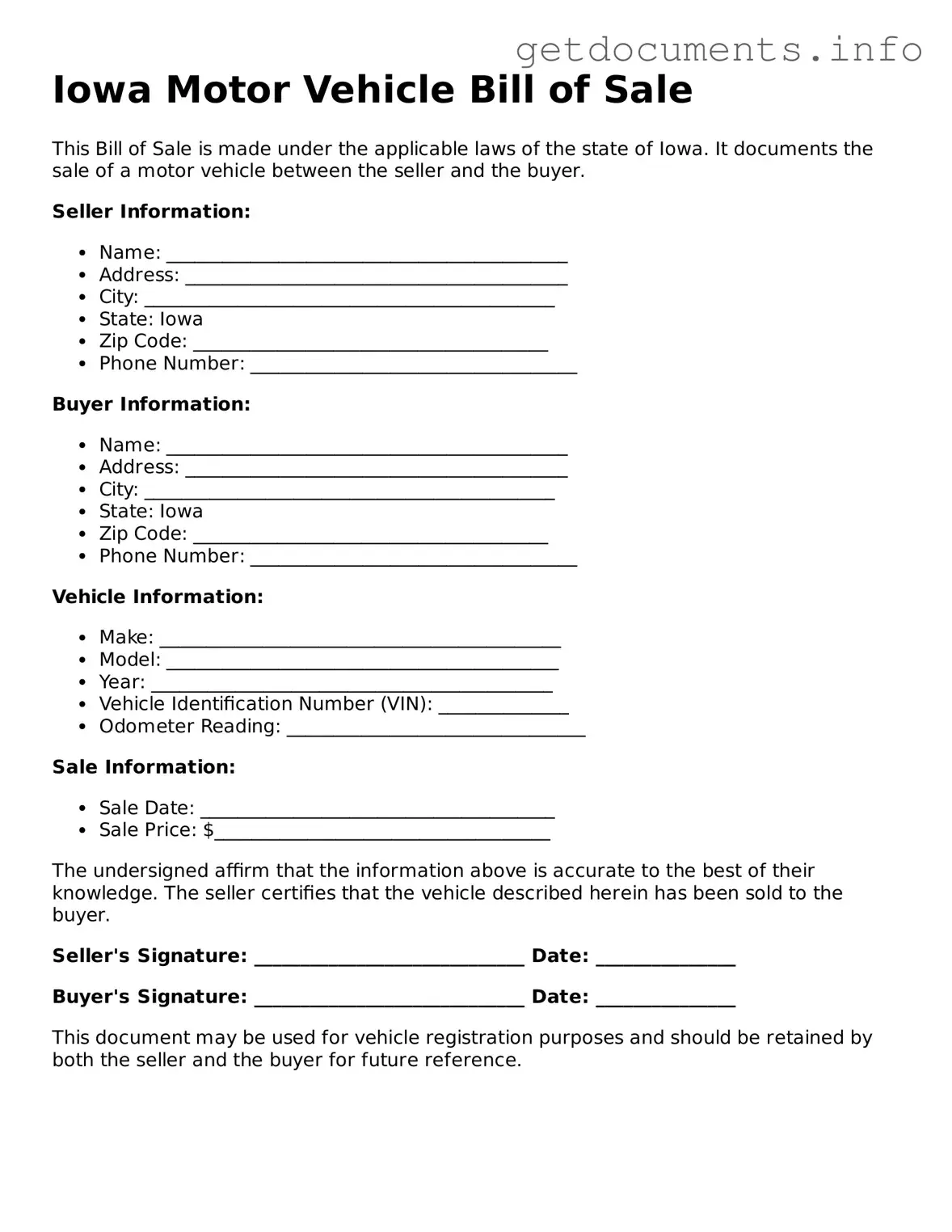Free Motor Vehicle Bill of Sale Template for Iowa
The Iowa Motor Vehicle Bill of Sale form is a legal document used to record the transfer of ownership of a motor vehicle from one party to another. This form serves as proof of the transaction and includes essential details such as the vehicle's identification number, make, model, and the sale price. Completing this form is crucial for both buyers and sellers to ensure a smooth transfer of ownership.
To fill out the form, click the button below.
Access Motor Vehicle Bill of Sale Editor

Free Motor Vehicle Bill of Sale Template for Iowa
Access Motor Vehicle Bill of Sale Editor
Got places to be? Complete the form fast
Fill out Motor Vehicle Bill of Sale online and avoid printing or scanning.
Access Motor Vehicle Bill of Sale Editor
or
⇩ PDF File
